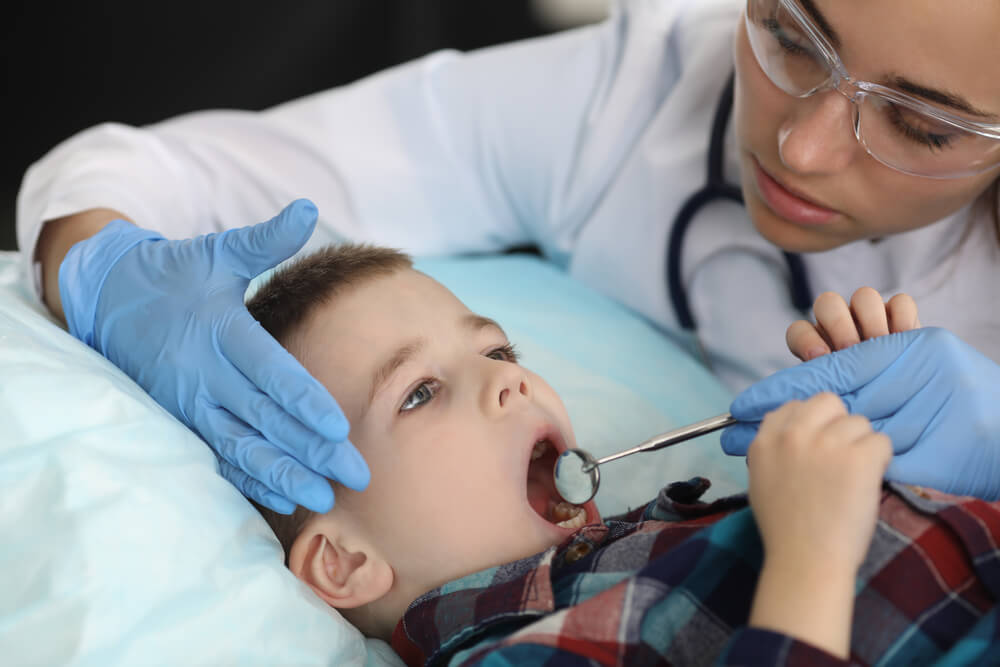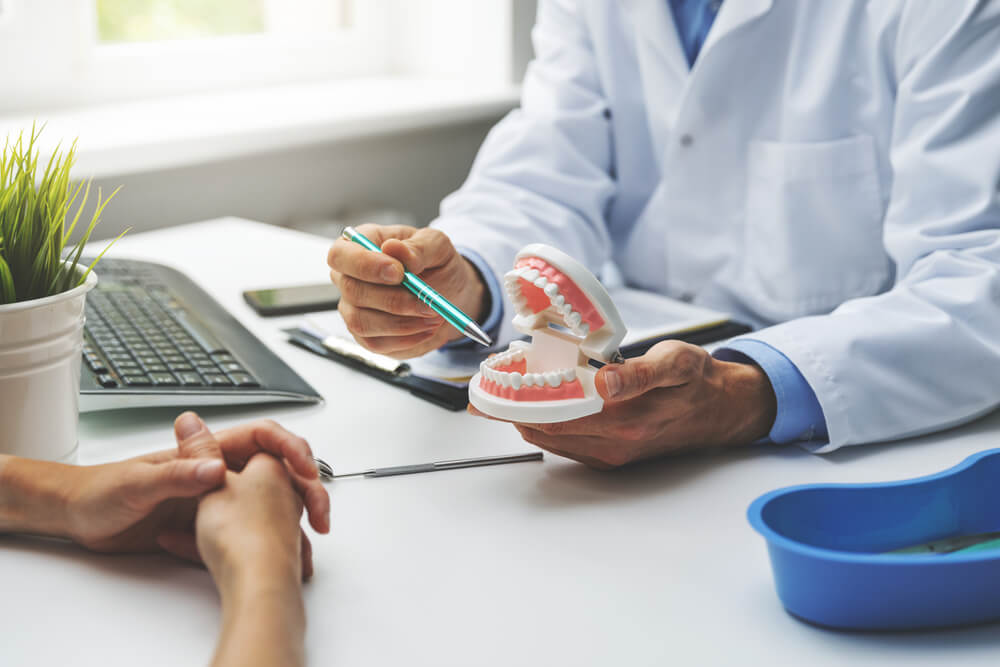Braces are often associated with children and teenagers, but adults also face challenges that can require orthodontic care. The question of how to know if you need braces revolves around specific conditions of your teeth and bite. Here’s your guide to determining whether an adult or child needs braces and the consequences of not addressing alignment issues.
Signs You Need Braces as an Adult
Many adults assume that orthodontic treatment is something that only kids go through, but misaligned teeth and bite issues can cause problems at any age. One common sign that you might need braces is crowded or crooked teeth.
If your teeth overlap, twist or feel tightly packed, it can be more difficult to keep them clean. Misaligned teeth create tight spaces where plaque builds up, leading to tooth decay and gum disease. Addressing crowding with braces can help avoid these long-term dental health issues.
Improper bite alignment is another indicator that you might need braces. Conditions like an overbite, underbite or crossbite affect how your teeth meet when you close your mouth. These alignment issues don’t just impact appearance; they can also lead to difficulty chewing, speech problems and uneven wear on your teeth.
Left untreated, misaligned teeth can also cause jaw pain or discomfort. If you experience frequent soreness in your jaw or hear clicking sounds when you open or close your mouth, it could be a sign that your bite is off and you need braces to correct it.
Another sign to watch for is difficulty with cleaning your teeth effectively. When your teeth are not aligned properly, it can be harder to reach certain areas, even with regular brushing and flossing. This can lead to increased plaque buildup, cavities and gum problems. If you find it hard to maintain your oral hygiene routine despite your best efforts, it might be worth consulting an orthodontist to see if braces could help.
Finally, persistent jaw pain or discomfort could also indicate the need for braces. Conditions like TMJ (temporomandibular joint) disorders can sometimes stem from an uneven bite or teeth that are out of alignment. If you experience chronic pain, tension headaches or notice uneven wear on your teeth, orthodontic treatment could provide relief.
Signs You Need Braces as a Child

For children, certain developmental milestones and habits can signal the need for braces. One of the earliest indicators is the timing of baby teeth loss. Losing baby teeth too early or too late can affect how adult teeth come in, potentially leading to overcrowding or alignment issues. If your child loses their teeth much earlier or later than their peers, it’s a good idea to have an orthodontist evaluate their bite and alignment.
Another sign to watch for is prolonged thumb-sucking or pacifier use. While it’s common for very young children to engage in these habits, if they continue past a certain age, they can impact how the teeth and jaw develop. Thumb-sucking can cause the front teeth to jut out or create gaps that later require braces.
Crowding or gaps in teeth are another common issue. If your child’s teeth look tightly packed together or have large gaps, it could indicate that their mouth isn’t developing the right space for incoming adult teeth. Early orthodontic intervention can help guide their development and prevent more serious issues down the road.
Mouth breathing and difficulty biting or chewing are also signs that a child may need braces. Breathing primarily through the mouth can affect facial development, while struggling to bite or chew food can signal misalignment in the teeth or jaw. If your child frequently complains about biting their tongue or the inside of their cheeks while eating, it’s worth having an orthodontist evaluate their bite.
What Happens If You Don’t Get Braces?
Deciding not to pursue braces can have long-term consequences for both adults and children. One of the most common outcomes is that misalignment issues worsen over time. What starts as minor crowding or a slightly crooked tooth can develop into more severe problems, making them harder to correct as time goes on. Mild alignment issues often become more prominent as teeth continue to shift, leading to increased discomfort and more extensive treatment later.
Ignoring the need for braces can also lead to significant oral health problems. Misaligned teeth are harder to clean, which can result in more cavities, gum disease and even tooth loss. An improper bite can cause uneven wear on your teeth, leading to fractures, enamel erosion and sensitivity. These issues can also contribute to jaw pain, tension headaches and difficulty chewing.
Beyond health concerns, there’s also an impact on overall quality of life. People with significant alignment issues may struggle with self-esteem, feeling self-conscious about their smile. Additionally, problems with speech or difficulty chewing can interfere with everyday activities, making life less comfortable. Choosing not to address these problems can mean living with ongoing discomfort and challenges that could have been prevented or minimized with braces.
How To Determine If You or Your Child Needs Braces

If you’re unsure whether you or your child needs braces, the best course of action is to consult an orthodontist. An orthodontist specializes in diagnosing and treating alignment issues in teeth and jaws, and they can assess your specific situation. During an evaluation, they’ll use diagnostic tools like X-rays, digital scans and bite impressions to determine the exact nature of the alignment problem.
For children, regular dental check-ups are key to catching early signs of issues that could require braces. Dentists often work closely with orthodontists to monitor a child’s development and make timely recommendations if braces could benefit them.
For adults, if you notice any of the issues mentioned earlier, it’s worth seeking a professional evaluation. You might discover that your concerns can be addressed with a relatively straightforward orthodontic treatment plan.
How To Know If You Need Braces at Peterson Family Ortho
Left untreated, orthodontic issues can worsen over time and lead to conditions that are harder to treat. If you’re wondering how to know if you need braces, contact us at Peterson Family Orthodontics. The best course of action is to speak with an orthodontist like Dr. Scott so you can get a proper diagnosis and treatment plan.

